IN Magazine talked with the writer/director after the world premiere of Our Son to discuss the film and its complex story…
By Matthew Creith
In its world premiere at the Tribeca Festival this month, Our Son is set to rebrand the mainstream idea of what the queer experience is for many couples. Representation of gay couples in film often comes in the form of struggling to come out to family members, dealing with the legal ramifications of same-sex marriage, and trauma. But audiences don’t tend to see many examples of the end of a queer relationship marked by divorce in the modern era.
Director Bill Oliver wants to change all of that with Our Son, his latest film to hit the festival scene starring out actors Luke Evans and Billy Porter. I caught up with the director prior to the World Premiere of the movie, which is set to debut at the Tribeca Festival on June 10. Our Son will soon make its way to the Provincetown International Film Festival and the Frameline Film Festival. I was privileged to screen the film before the festival started and discuss the complex story with Oliver.
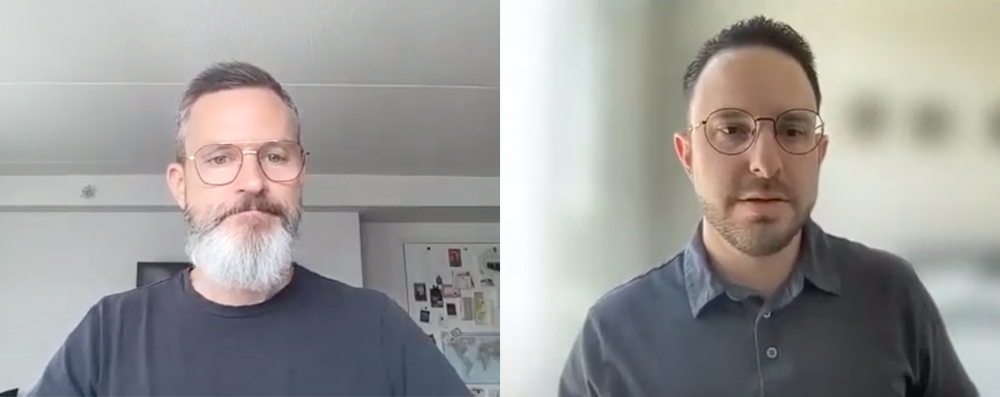
I had a chance to screen the film ahead of time and it’s beautiful. It resonated a lot with me personally. I hope that that’s kind of the intention for why you and Peter (Nickowitz) started on this journey writing this film and then you directing it. Oftentimes, when we see a lot of films about queer representation, we don’t often talk about the fact that they could get divorced and that things could end the relationship rather than the struggles of getting into the relationship. So I know that you’ve worked with Peter before writing scripts, what interested you about these characters and their journey in the process?
Neither of us is divorced. But the idea of divorce is exciting because as you said, it’s sort of something new. It’s just now emerging because gay marriages only legalized a few years ago. So something we hadn’t seen before. But it really was just sort of a concept that allowed us to talk about things that were more personal to us. We talked to a lot of people who had been through divorce to understand that and to understand the legal aspect of that, but you know, we’re human. We’ve been in relationships and been through breakups. I’m a father to two boys who I helped conceive. I was a sperm donor to a lesbian couple years ago, so yeah, I have two sons. Peter is an uncle and very close to his two nieces. So, we drew on that experience and also took the opportunity to explore what that meant for us personally. All the conflicted feelings that come with being a caregiver to a child. I had to go through a breakup while I was trying to help raise these kids, and how to be a good dad while you’re still going through this sort of personal crisis is something that we could definitely relate to. We wanted to keep it as personal and emotional as possible for us, obviously, to get us through the whole thing. But so that audiences could connect to it.
Without going into a lot of details about the ending. For those that haven’t seen the film yet, it is heartbreaking. To a certain degree, true sacrifice for what’s presented from the beginning to the end. Was the ending something that you and Peter conceived of early on, maybe in the outlining process, or did that just kind of come naturally as you were creating the film?
Yeah I mean, endings are always tough and I don’t think we had the ending as we started writing. Sometimes you do, sometimes you don’t. But yeah, not to give away the ending, it’s sort of something that I was familiar with in my own family arrangement, which is somewhat like a divorced family relationship in the sense that we kind of share custody of the kids and they live nearby. But they would go back and forth and there would always be this moment of handoff sort of. When you have divorced parents, you’re going back and forth, and there’s a poignancy to that. And so, we had this idea of sort of a handoff scene kind of coming towards the end of the movie that was just a very simple way to show kind of what the future is going to be like for them. That was bittersweet.
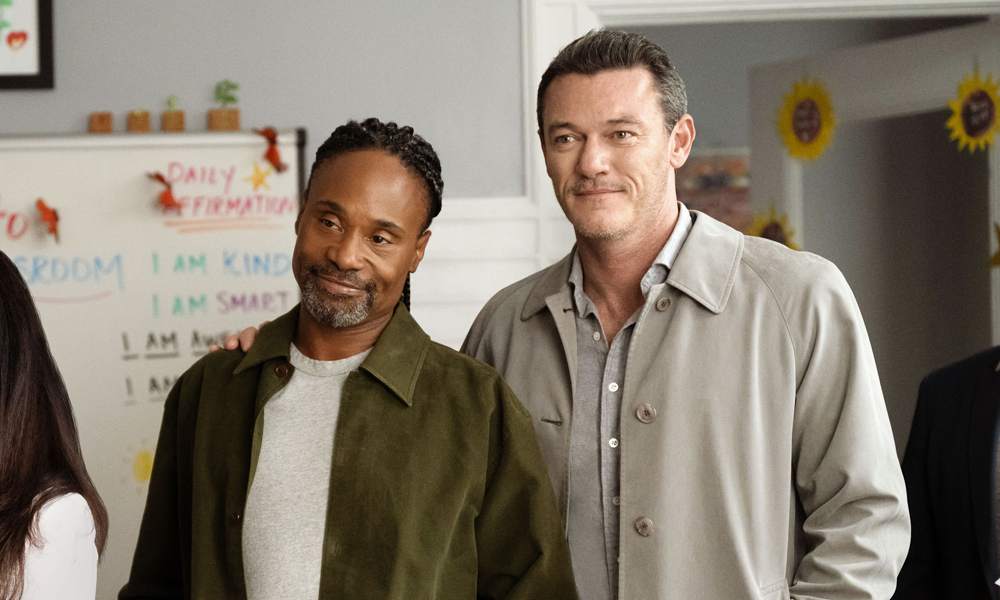
A lot of times in movies about gay couples, we often see family members and friends as well. With Our Son, it seems like the family members are kind of at a different stage. This is a couple that’s been together for 13 years, they’ve been married since it was legalized in the U.S. They have a son. Was that something that you and Peter, or even you as the director, paid close attention to making sure that we weren’t necessarily seeing a struggle of a coming out story or a struggle of acceptance. It was just the after effects of a relationship and how family and chosen family of friends support that couple individually?
From the outset, we knew we wanted to make a film about queer people that were front and center the leads, not just supporting characters. But we also didn’t want it to be about something specific like coming out or any sort of trauma narrative. You know, it’s a difficult experience they’re going through but it’s very relatable. It’s very universal. As you start to write it and throughout the filming and editing, you kind of discover what the movie is really about. It was about family, and family for queer people has a different resonance. We have the families that we come from and then we have our chosen families, which are super important to us and then sometimes the families we make. It was important to us to get those friends in there, to get the biological parents and grandparents in there. Because divorce affects everyone you know, not just the couple going through it. It’s sad and it’s difficult for the loved ones too. A theme of the film is custody. It’s a custody battle, but it’s also custody in the sense of how we take care of each other in times of need. We wanted to show how the friends were struggling to take care of them, but also going about their own lives. We didn’t want the friends to just be all about them, but each character has their own thing. There’s the couple about to have a baby. One is entering into a new relationship, and the other couples have been together for a long time. We wanted to show that they’re going about their lives while also helping to support this family that they care so much about.
My take away with friends, especially Andrew Rannells’ character, is that they’re honest with the lead couple, for the most part. Just hearing Luke Evans’ character of Nicky talking to their friends and some of the friends saying, “I could never have kids” or “I’m so glad with my choices” kind of thing. Nicky is kind of struggling with his custody and divorce and everything: it’s a very different kind of place in life.
I think that’s something that’s so poignant about gay people creating families is that it requires so much intention, because it can’t just happen. You have to arrange it, you have to spend money, you have to spend time putting it together. So we wanted to make sure that was in there. That scene with the friends was kind of inspired by the movie, An Unmarried Woman, which is a movie from the 70s by Paul Mazursky. There’s a scene where the main character is divorced and at the time, that was a major thing for a woman to be divorced and it really explored what that’s like. There’s a great scene where she’s sitting around with her female friends and they’re just like in bed, reading the paper and they’re just talking about what it means to be a woman in the world. So I just wanted the scene with the friends together talking about kids and having kids, their own fathers and what it means to be a father. It was important to get all the different perspectives because not everyone wants to have kids. You know, there’s this sort of assumption, that that’s the end goal of everyone but it’s okay not to want to.
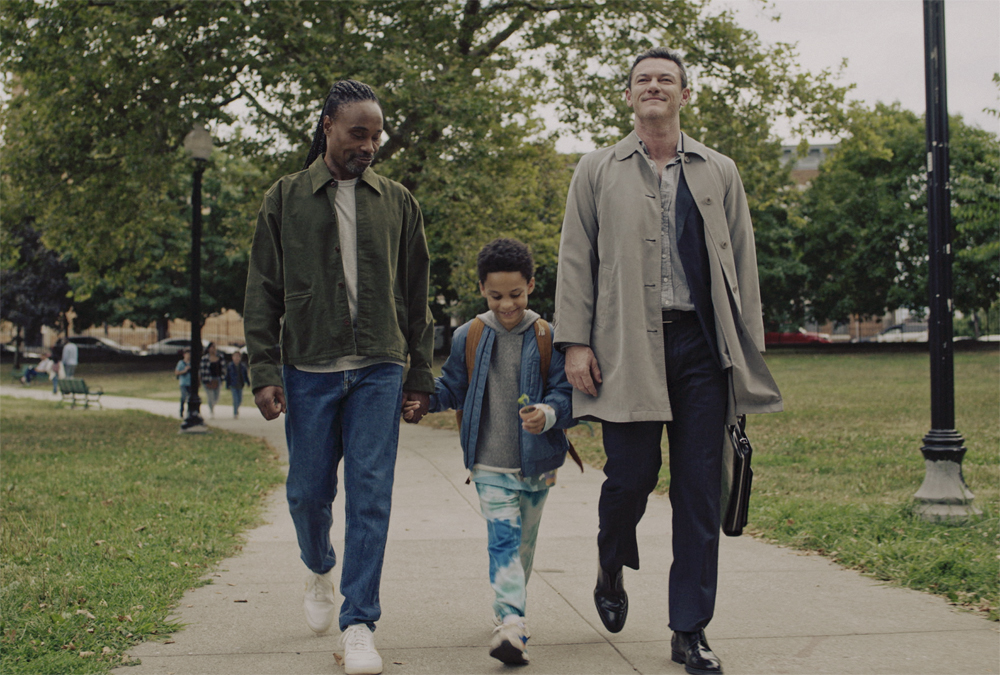
Speaking of the leads, Luke Evans and Billy Porter, what was the casting process like to find them? How did that all come together? Were they up for the challenge?
For this film, it was very important to us that we cast openly gay actors in all the roles. So Billy was the first person we went to, and he read the script and really loved it. I had a Zoom interview with him that was just a way for us to kind of feel each other out and make sure we want to go on this journey together. And he was really wonderful. He said in that meeting, he has a quiet side that he wanted to show people like a sort of more domestic side. I knew that he was going to be great, because I knew his work and that sealed the deal for me. That was very exciting for me to help him bring that out. Then Luke also was someone I was familiar with his work. But this is his first leading role as an openly gay man. I was really impressed by his willingness and excitement to do that. Who really, really wanted to do that. I thought that was kind of brave. He often plays these sort of tough guys, I mean, he could be James Bond. He does all these action movies. I was really excited to have him in the lead and to show all this vulnerability, which is another part of this film., We wanted to show that men can be nurturing and vulnerable and emotional. He really brought that and it was great.
They both did such a fantastic job. I know that East Coasters are getting a chance to see the film in Provincetown. West Coasters are going to see it at Frameline. We have Tribeca coming up this weekend. What’s next for Our Son? What do you hope for it? Where’s it going next?
We are hoping to sell it to a distributor at one of these festivals. So that it can come out in release, hopefully sometime in the fall. But for now it’s doing the festival circuit.
Well, good luck to you. Congratulations on the movie. It’s beautiful. I appreciate it, not only as a gay man, but as a movie goer. So thank you very much.
Thank you so much.

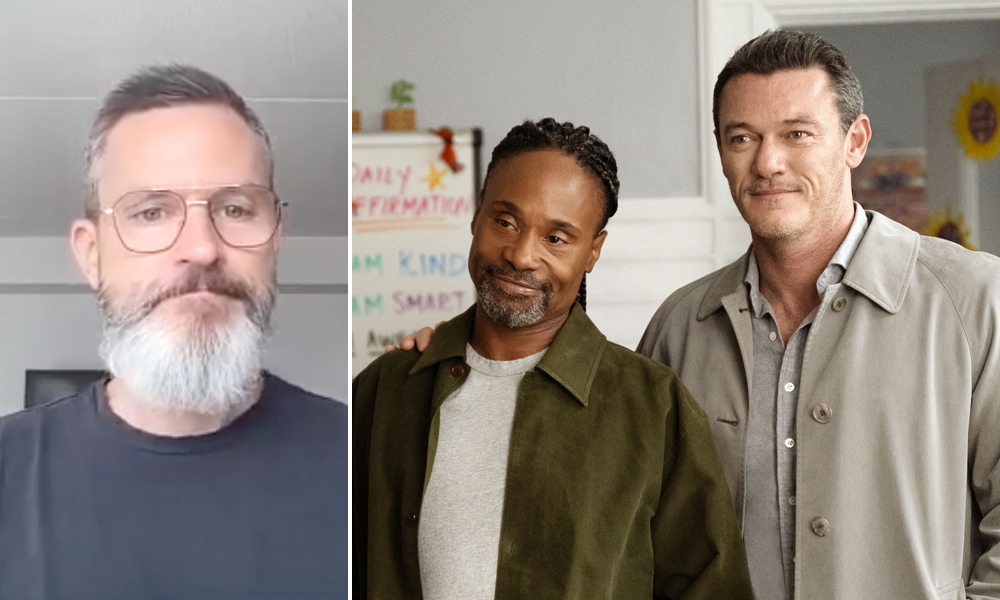
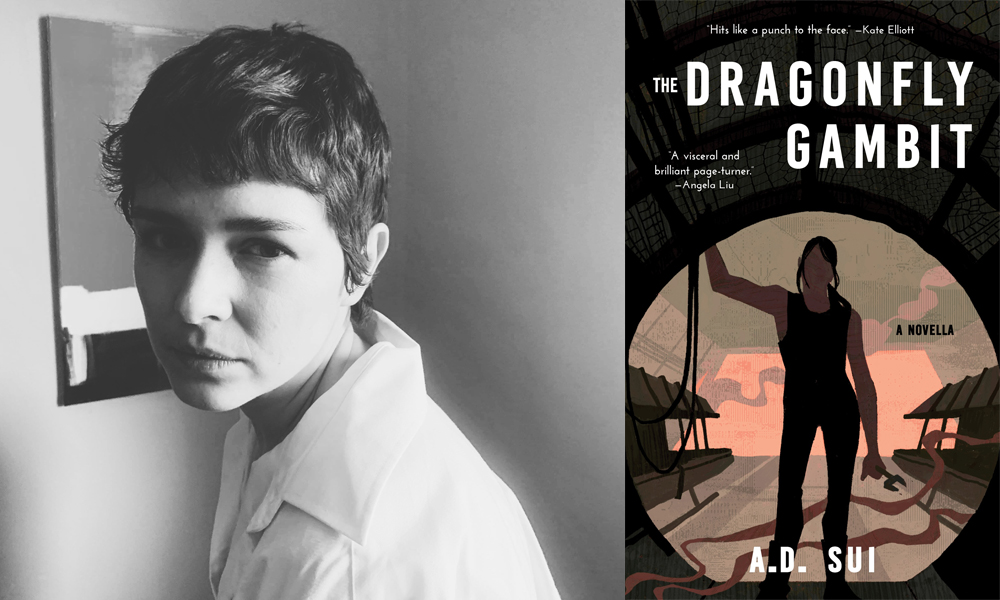
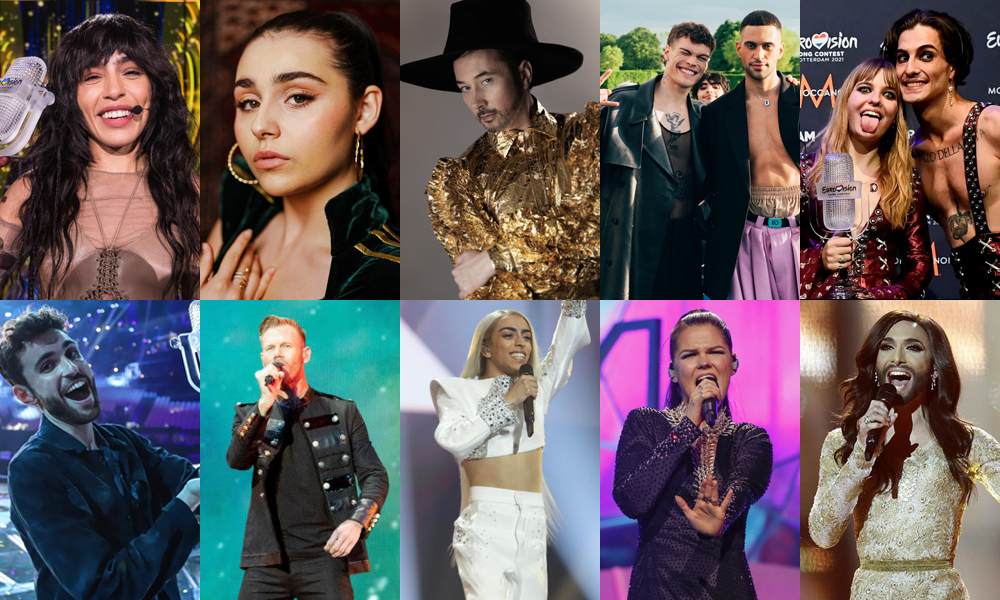
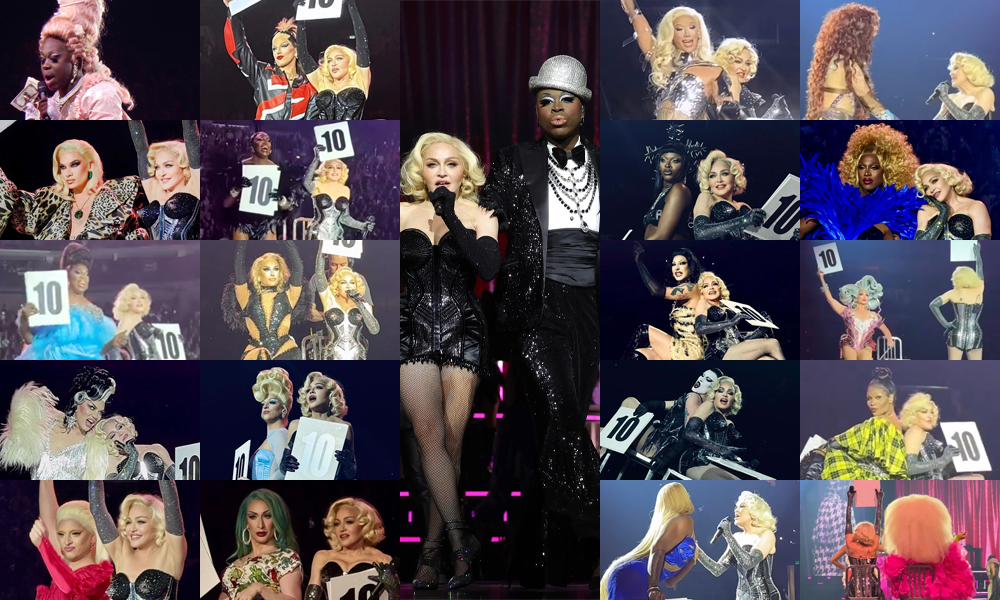

POST A COMMENT